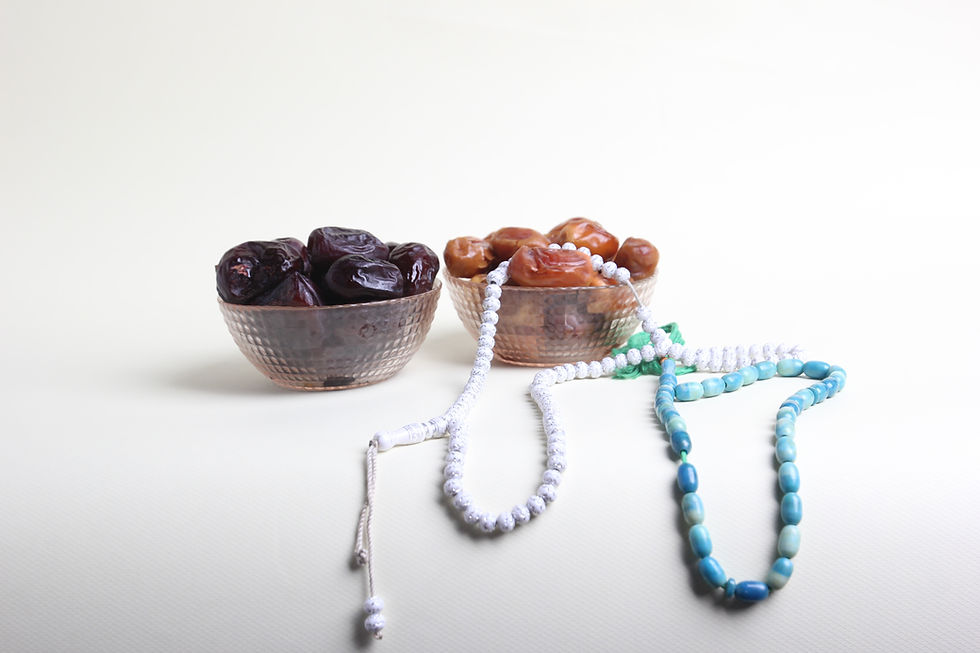3 key nutrients to help support embryo implantation with IVF
- Dahlia Abou El Hassan

- Aug 1, 2021
- 2 min read
Posted on August 1st, 2021. Author: Fayrouz Elkhouly, BAsc.
Reviewed & Edited by Dahlia Abou El Hassan, MScFN, RD

A healthy and balanced diet is crucial for any woman undergoing In Vitro Fertilization (IVF). Women may need IVF for several reasons such as blocked or missing fallopian tubes, endometriosis, ovulation disorders, uterine fibroids, previous tubal removal or couples in which the male has a very low or absent sperm count. It has been proven in several studies that the nutrients you consume can play an important role in fertility and success of an IVF cycle.
Undoubtedly, there are key nutrients that women should focus on when undergoing IVF.
Here are the top 3 key nutrients, that you should make sure are part of your diet, that are important for implantation support:
1. Vitamin D
Vitamin D is a crucial nutrient for overall health and has many different functions in our
body, such as aiding calcium absorption which is needed for bone health and regulating
the immune system. It is also specifically beneficial for IVF success as it plays a role in
higher implantation rates. In several research studies, vitamin D has been found to achieve clinical pregnancy following IVF and implantation success.
As you might know, Vitamin D can be obtained from sun exposure. However, that can be
hard for some of us, especially considering the climate in Canada. Although, saying that,
summer is here, and you should make use of the sun while it lasts! Besides sun exposure, fortunately, vitamin D can be found in many dietary sources that include:
Oily fish – salmon, sardines, herring and mackerel
Red meat
Egg yolks
Fortified foods such as breakfast cereals
Mushrooms
Fortified plant milks: Almond milk, oat milk, soy milk, etc.
2. Omega-3 fatty acids
The second key nutrient you should consider including in your diet would be omega-3 fatty
acids. Omega-3 fatty acids play an important role in reducing inflammation, supporting heart
health and regulating blood clotting. Inflammation can damage embryos and prevent successful
implantation. Omega-3s have been associated with improved chances of embryo implantation
and decreased premature labor. Dietary sources of Omega-3 fatty acids include:
Nuts especially walnuts
Seeds such as flax seeds, chia seeds and pumpkin seeds
Avocadoes
Plant oils
Fatty fish such as salmon, mackerel, tuna, herring and sardines.
Cauliflower
Spinach
Edamame
3. Magnesium
Magnesium is another nutrient that helps reduce inflammation in our body. Once again,
implantation rates are improved when there is less inflammation present. In addition, magnesium
helps support fertility hormones which increases the chances of IVF success.
Consider adding these Magnesium-rich foods in your diet:
Pumpkin seeds and chia seeds
Almonds, Peanuts and Cashews
Spinach
Soymilk
Black beans
Edamame
Avocadoes
Dark chocolate
These are the key nutrients to consider in your fertility diet. Speak with one of our fertility
dietitians for customized nutrition recommendations. Click here to book.
Check out some of our recipes such as the energy bites that contain two of the key nutrients,
Omega-3 fatty acids and Magnesium. Also give our recipe, honey paprika salmon with lime sour
cream a try for a great source of Vitamin D and Omega-3 fatty acids. You could also visit our Instagram @Dahlia_fertility_nutrition to find out about additional key nutrients for IVF and their dietary sources.
NOTE: This blog is for general information purposes only and does not replace individualized advice provided to you by your specific healthcare professional such as Dietitian or Physician.









Comments